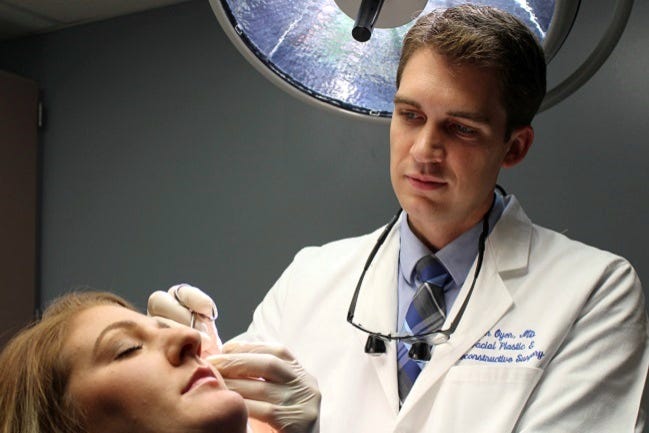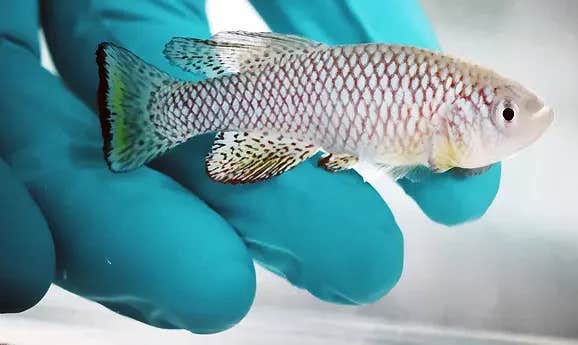CRISPR-modified skin grafts developed to treat addiction
The platform uses genetically modified skin cells to deliver long-lasting, hyper-effective treatment and only needs to be administered once.

[Feb 26, 2022: Melissa Fassbender, AddGraft Therapeutics]
The platform uses genetically modified skin cells to deliver long-lasting, hyper-effective treatment and only needs to be administered once. (CREDIT: Creative Commons)
AddGraft Therapeutics has developed a novel platform that aims to effectively treat substance use disorders with genetically engineered skin grafts—a first-of-its-kind treatment with myriad applications.
Developed by University of Chicago researchers Xiaoyang Wu, associate professor at the Ben May Department of Cancer Research, and Ming Xu, professor of neurobiology in the Biological Sciences Division Department of Anesthesia and Critical Care, the platform uses genetically modified skin cells to deliver therapeutics and has the potential to provide long-lasting, highly effective, and minimally invasive treatment that only needs to be administered once.
Outside the lab, this work is currently being commercialized via AddGraft Therapeutics, a startup cofounded by the duo in collaboration with CEO Ryan Meyers, a University of Chicago Booth School of Business MBA candidate who has a background in healthcare consulting and venture capital. The company was incorporated after participating in the Compass, a deep tech accelerator run by the University's Polsky Center for Entrepreneurship and Innovation.
"With the help of the Polsky Center, we see the greater potential of translating the technology for drug or substance use disorders," said Wu, AddGraft's chief technology officer. "There is a huge unmet medical need and currently no effective therapeutic approaches."
Related News
How does the Addgraft approach work?
Patient skin stem cells are harvested and modified using CRISPR, a gene-editing tool that enables the researchers to introduce genes that can produce molecules that significantly reduce the motivation to take or seek alcohol. The skin cells are then re-implanted into the patient through a skin graft that acts as a so-called "bio engine," producing these molecules throughout the life of the graft. In preclinical studies, the engineered skin grafts protected against drug addiction and overdose in animal models.
"Using this process, we can efficiently and safely deliver the therapeutic to the patient," said Wu. "We believe the novel approach can serve as a long-term treatment for patients and help protect them against the harmful effects of drug use."
Though there are some medicines already approved and used in conjunction with behavioral counseling and other approaches, the recurrence of substance use is very common. "We hope our approach can prove more long term and stable, likely permanent," Wu explained.
The permanence of the graft is notable as medication compliance is a challenging issue, especially in mental health treatment, noted AddGraft advisory board member and former president and CEO of the Gateway Foundation, Michael Darcy. "This is actually turning the switch off in the brain with respect to the craving, which is the drive that motivates people that use drugs and alcohol," he added.
Additionally, the platform addresses "all core aspects of alcohol misuse," explained, Xu, who serves as AddGraft's chief scientific officer. These include the development of misuse, relapse, and overdose. "All these can be prevented by this single genetically modified skin graft," he said.
While the goal is currently to focus on alcohol use disorder, Xu said the platform could also be used to prevent co-use of drugs. Said Xu, "My vision, my dream would be using this novel genetic platform to treat all drug use and co-use, significantly improving and benefiting the quality of life for a large fraction of society."
From lab to market
While the work is very early stage, the excitement among the team and recent investors is palpable. "Many fail for one reason or another, but I think we have some really good factors working for us," said Xu. "We have a good team and a very novel, unique platform. But above all, there is a huge unmet need in this area. Our product would truly fill a void. I firmly believe this."
AddGraft has developed a platform that uses skin epidermal progenitor cells to deliver one or more therapeutic agents. (CREDIT: AddGraft Therapeutics)
Xu, who has focused on substance use research for the past 25 years, noted that very few of the findings from his lab—and many labs in the field—have been commercialized to benefit patients. "The public has not been benefiting from our work," he said.
Until recently, there has been very little innovation in the addiction treatment space: "For the last 40 years it's pretty much been the same model," said Thomas Britton, president and CEO of the Gateway Foundation.
"Today, there's a lot of technologies that are trying to come to market, and AddGraft is one," Britton added. "If what they do works and has mass application, it has a tremendous opportunity to change the recovery experience for those who are suffering from drug and alcohol use."
The Gateway Foundation is focused on advancing the science of addiction treatment. For Britton, who is in long-term recovery himself, the work is personal. "I put a lot of time and energy and money into understanding what creates better outcomes," he said. "The early science is promising to me."
Still, one of the biggest obstacles to success is whether health insurance companies will help pay for the treatment. "For them to make the investment upfront for something that will be a long-term benefit to the payer, there needs to be a clear value proposition," said Britton. "If AddGraft can prove the argument with alcohol, the immediate cost of which is dramatic, then I think they can expand the argument to other drugs.
"They need to prove the product works, get people to believe it works, and find people who are willing to use it and pay for it. That's a big lift," he added. "But I think it's possible."
For more science and technology news stories check out our New Innovations section at The Brighter Side of News.
Note: Materials provided above by AddGraft Therapeutics. Content may be edited for style and length.
Like these kind of feel good stories? Get the Brighter Side of News' newsletter.
Tags: #New_Innovations, #Skin, #Grafts, #Addiction, #Research, #Science, #Disease, #Neuroscience, #CRISPR, #The_Brighter_Side_of_News



